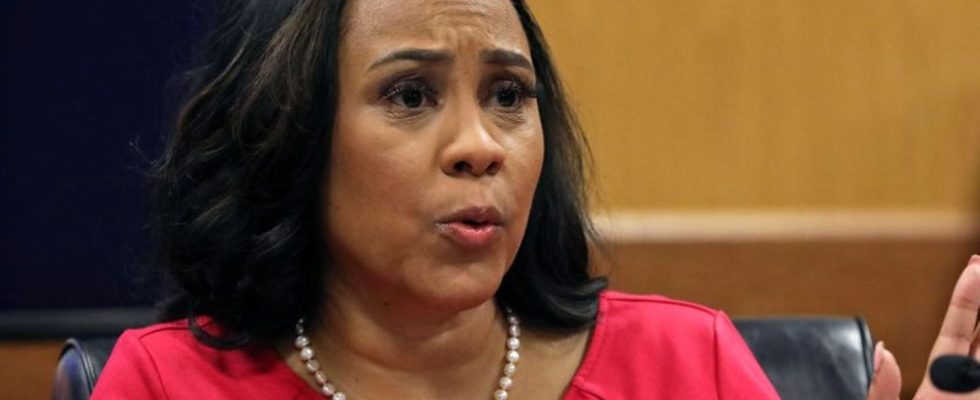Justice
“Don’t stand in court”: Trump accuser defends herself
Fani Willis is leading the trial in which Trump and other defendants are accused of attempting to overturn the outcome of the 2020 presidential election in Georgia. photo
© Alyssa Pointer/Pool Reuters/AP/dpa
The Trump trial in the US state of Georgia is increasingly becoming a mudslinging affair. A questioning of the responsible public prosecutor about her private life is broadcast live – and things get very heated.
Trump’s lawyers and those of a co-defendant claim that Willis and her colleague, prosecutor Nathan Wade, had a conflict of interest because of a romantic relationship. The accusation is, among other things, that Wade was overpaid in his position and invited Willis to luxury vacations together.
Willis has previously acknowledged a personal relationship with Wade, but stressed that there was no conflict of interest that would justify removing her from the case. She has now stated several times that she has always paid for joint ventures herself and attached importance to the statement that she is financially independent.
Court date in live stream
The hearing in Atlanta was broadcast live on YouTube and the US broadcaster CNN, among others – this is not unusual in the USA. Less common was insight into the Trump accuser’s private life. In addition to her and Wade, former and current colleagues were also interviewed, who sometimes felt visibly uncomfortable.
The opposing lawyers’ questions focused on details of the romantic relationship between Wade and Willis. They focused on where the two of them slept together, at what times, and how they handled expenses during joint activities. They were also interested in when exactly the relationship began and when it ended.
Willis hired Wade to work on the case in November 2021. Wade and Willis both said their romantic relationship only began in 2022 and ended in the summer of 2023. However, the testimony of another witness calls this timeline into question.
Charged mood
The district attorney was noticeably angry. She described some questions as “insulting” and in several places accused the other side of lying or misrepresenting facts. At one point, Willis said, “Do you think I’m on trial here? These people are on trial for trying to steal an election in 2020. I’m not on trial here, no matter how hard you try to shut me down to be brought to justice.”
The other side’s lawyers interrupted them more often, so that the responsible judge, Scott McAfee, interrupted the hearing for a few minutes at one point and urged professionalism: In a room that was “mostly filled with lawyers”, McAfee urgently asked those involved to do so to respect the principles of the rule of law.
The process could falter
The allegations against Willis were originally made by the lawyers of a co-defendant, Trump’s former campaign aide Mike Roman. They not only asked McAfee to remove Willis from the case, but also to drop the entire charge against their client. Trump and other co-defendants joined the demand.
If Willis is indeed disqualified, her successor could again determine whether the prosecution against Trump and the remaining 14 defendants should proceed. Four of the Republican presidential candidate’s former associates have already entered into a plea agreement with prosecutors and pleaded guilty.

